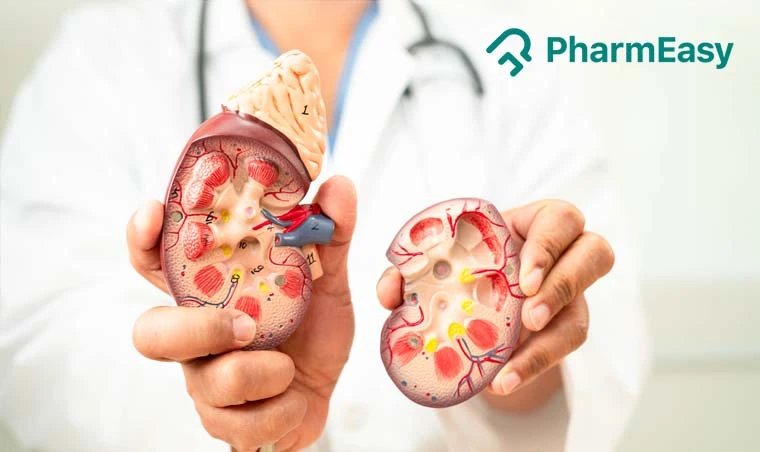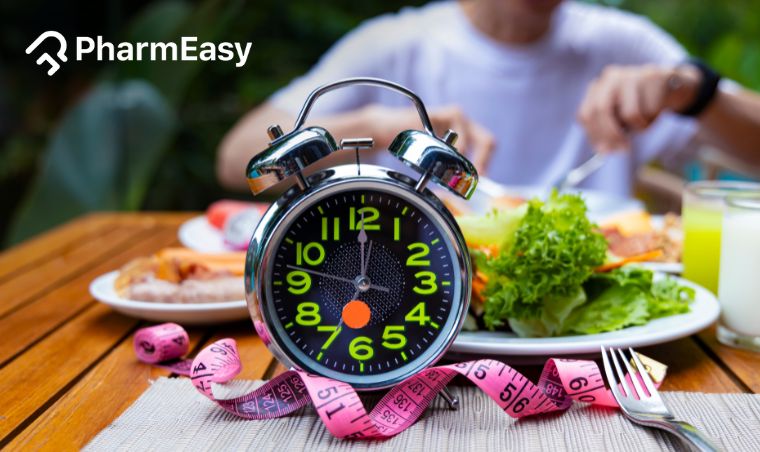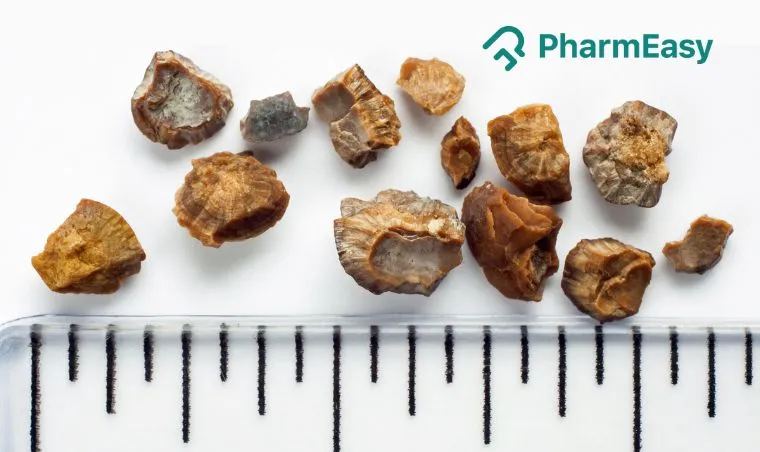Rabidac 20mg Tablet
Description
Rabidac Tablet is used to provide relief from acidity and heartburn due to stomach acid reflux. It is also used to treat stomach and intestinal ulcers caused due to acid reflux disease and Zollinger-
Ellison Syndrome. It contains rabeprazole, belonging to the "Proton pump inhibitor" class of medicine. This medicine reduces the amount of acid produced in the stomach. Rabeprazole acts by blocking the action of proton pumps present in the stomach wall, which are responsible for acid production. You should take this medicine preferably in the morning 30 minutes before meals. A lifestyle change would help in controlling your acidity well. Avoid alcohol and smoking, excessive consumption of soft drinks, citrus juices, tea and coffee (caffeinated drinks), spicy, oily and fast foods. You should avoid eating late at night or just before going to bed.
Product Summary
| Offer Price | ₹32.66 |
| You Save | ₹13.34 (29% on MRP) |
| Contains | Rabeprazole(20.0 Mg) |
| Uses | Acidity, chest pain, heartburn, GERD |
| Side effects | Sleeplessness, headache, dizziness, cough, runny nose |
| Therapy | ANTACID |
Uses
- Rabidac Tablet is used in the treatment of heartburn and chest pain due to stomach acid reflux disease in which acidic content from the stomach comes up to the food pipe and mouth.
- Treatment of ulcers of stomach, intestine and inflammation and erosion of food pipe due to stomach acid.
- Management of a condition of increased gastric acid production induced by a tumour of the intestine or pancreas, also known as Zollinger-Ellison syndrome.
Contraindications
- If you are allergic to rabeprazole or any other ingredients of Rabidac Tablet.
- If you are pregnant or think that you could be pregnant or are breastfeeding.
Side effects
- Sleeplessness
- Headache
- Dizziness
- Cough
- Runny nose
- Sore throat
- Diarrhoea
- Vomiting
- Nausea
- Stomach discomfort
Precautions and Warnings
Pregnancy
Breast Feeding
Driving
Alcohol
Other General Warnings
- You have stomach pain, indigestion and problems in swallowing, family history of stomach cancer.
- You vomit food or blood or you are passing black stools.
- You have a skin reaction after taking similar medicine.
- You are experiencing frequent diarrhoea.
- You have a liver function problem.
- You are experiencing symptoms like painful joints, skin rashes and tiredness.
- You are to undergo any blood test (Chromogranin A).
- You are expected to take this medicine for a longer duration as there are several risks associated with that.
- The long term treatment with the Rabidac Tablet may lead to a deficiency of vitamin B12 which can produce symptoms like pale skin, sore tongue, weakness, headache, disturbed vision and irritability.
- The long term treatment of this medicine may also weaken your bones or may slightly increase the risk of fracture.
- In some patients with ulcers, the course of this medicine may take 1 to 3 months. Do not stop the medicine on your own.
- Rabidac Tablet is not recommended for use in children.
Mode of Action
How Does It Work?
- In an average healthy individual, specific cells in the stomach get stimulated and release acid after intake of food. In certain individuals, the stomach wall secretes an excess of acids and lead to acid-related stomach problems such as ulcers....
- Rabidac Tablet blocks the activity of certain processes in the stomach walls known as proton pumps thus acid release in the stomach decreases and this helps in the healing of ulcers and improves symptoms such as acidity and heartburn....
Directions for Use
- Rabidac should be taken as directed by your doctor.
- Swallow it as a whole with a glass of water. Do not cut, break or chew the medicine.
- It should be taken without food, preferably before 30 mins.
- It would be best if you took it at a fixed time for optimal results.
- You should not consume it more than that prescribed by your doctor.
Interactions
Interactions with other medicines
- Rabidac Tablet may interact with other medicines, discuss with your doctor about all the medicines, supplements or herbal preparations you are taking. Also, you should inform your doctor if you have a planned surgery or vaccination scheduled....
- Concomitant use of the Rabidac along with medicines used to treat HIV infections like Atazanavir, Nelfinavir, Rilpivirine or use of antacids should be avoided as rabeprazole may decrease the effectiveness of these medicines....
- There can be increased chances of getting side effects if you are taking a medicine containing Digoxin used to treat heart failure along with Rabidac Tablet, especially in elderly patients.
- Concomitant use of anticoagulants like Warfarin can increase the risk of bleeding and ulcers.
- Other medicines like Methotrexate and antifungals such as Ketoconazole or Itraconazole should be used cautiously, as it can alter the effects of the Rabidac Tablet.
Interactions with food items
Storage and disposal
- Store Rabidac Tablet below 25°C, protected from direct sunlight, moisture and heat.
- Keep it out of the sight and reach from children and pets.
- Do not use expired medicines.
- Discard any unused medicine properly. Do not flush in the toilet or throw it into the drain.
Dosage
Overdose
Missed a Dose
Content Details
Dr. Arpit Verma
MBBS, MD, CCEBDM Diabetology
Dr. Ritu Budania
MBBS, MD (Pharmacology)
Frequently Asked Questions (FAQs)
Q: Why do I get B12 deficiency with Rabidac?
Q: Why should older people be cautious while using the Rabidac?
Q: Can I take the Rabidac Tablet on an empty stomach?
Q: Can Rabidac Tablet be used in children?
Q: How to take Rabidac Tablet?
Q: Is Rabidac safe to use during pregnancy?
Q: What is Rabidac used for?
References
- CDSCO [Internet]. Cdscoonline.gov.in. 2025 [cited 8 April 2025]
- Rabeprazole 20mg Gastro-resistant Tablets -Patient Information Leaflet (PIL) - (emc) [Internet]. Medicines.org.uk. 2025 [cited 8 April 2025].
- Rabeprazole 20mg Gastro-resistant Tablets - Summary of Product Characteristics (SmPC) - (emc) [Internet]. Medicines.org.uk. 2025 [cited 8 April 2025]
Did you find this medicine information helpful?
Please rate your experience



















